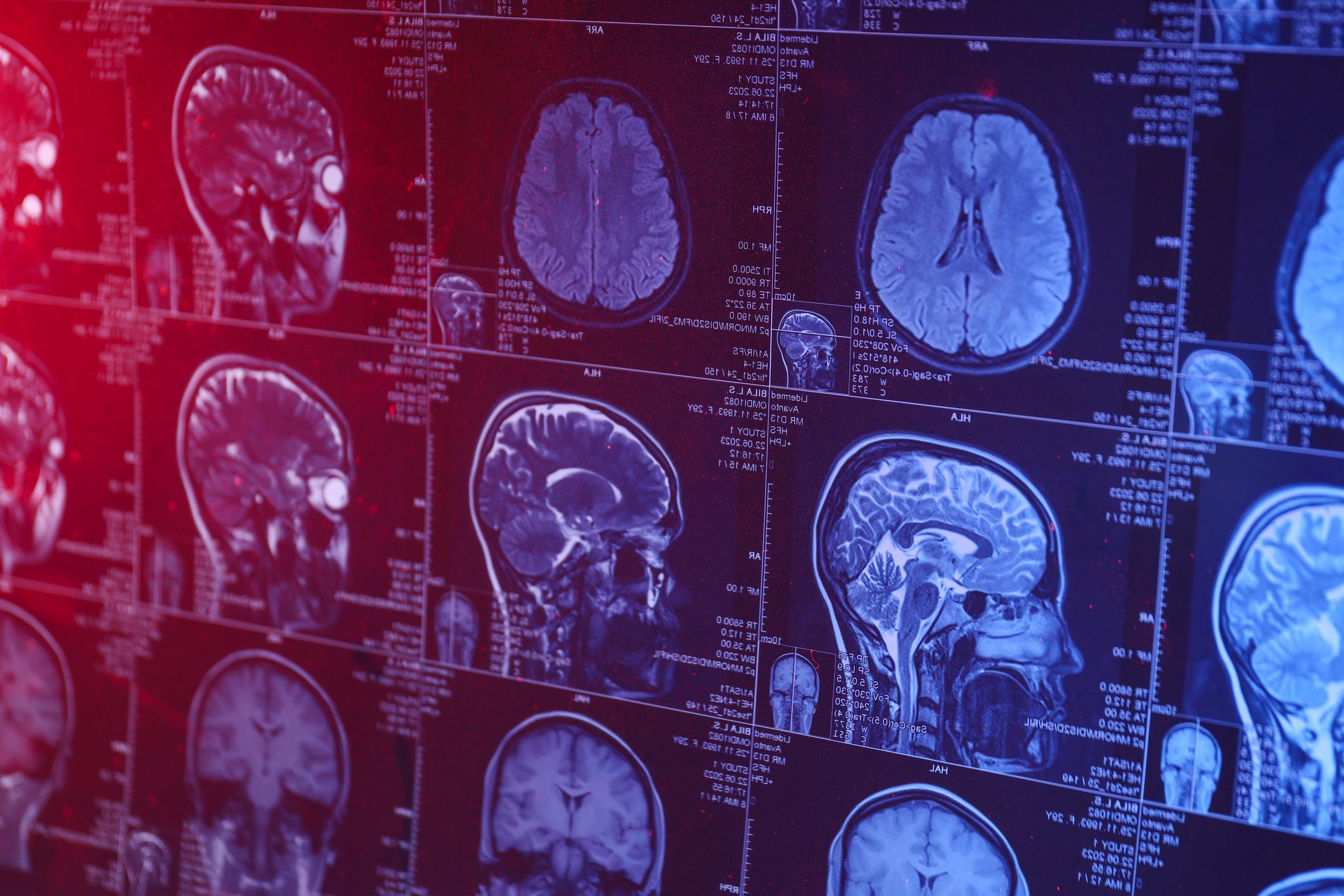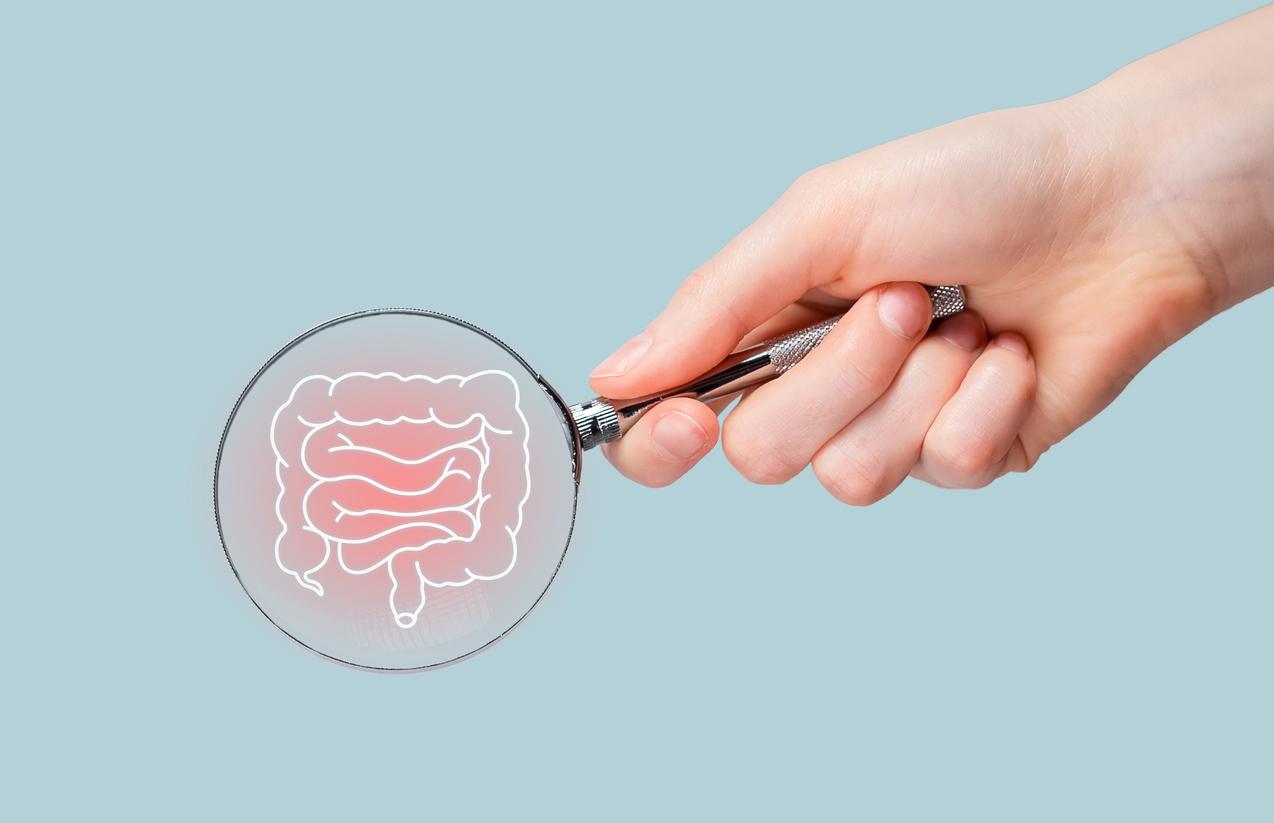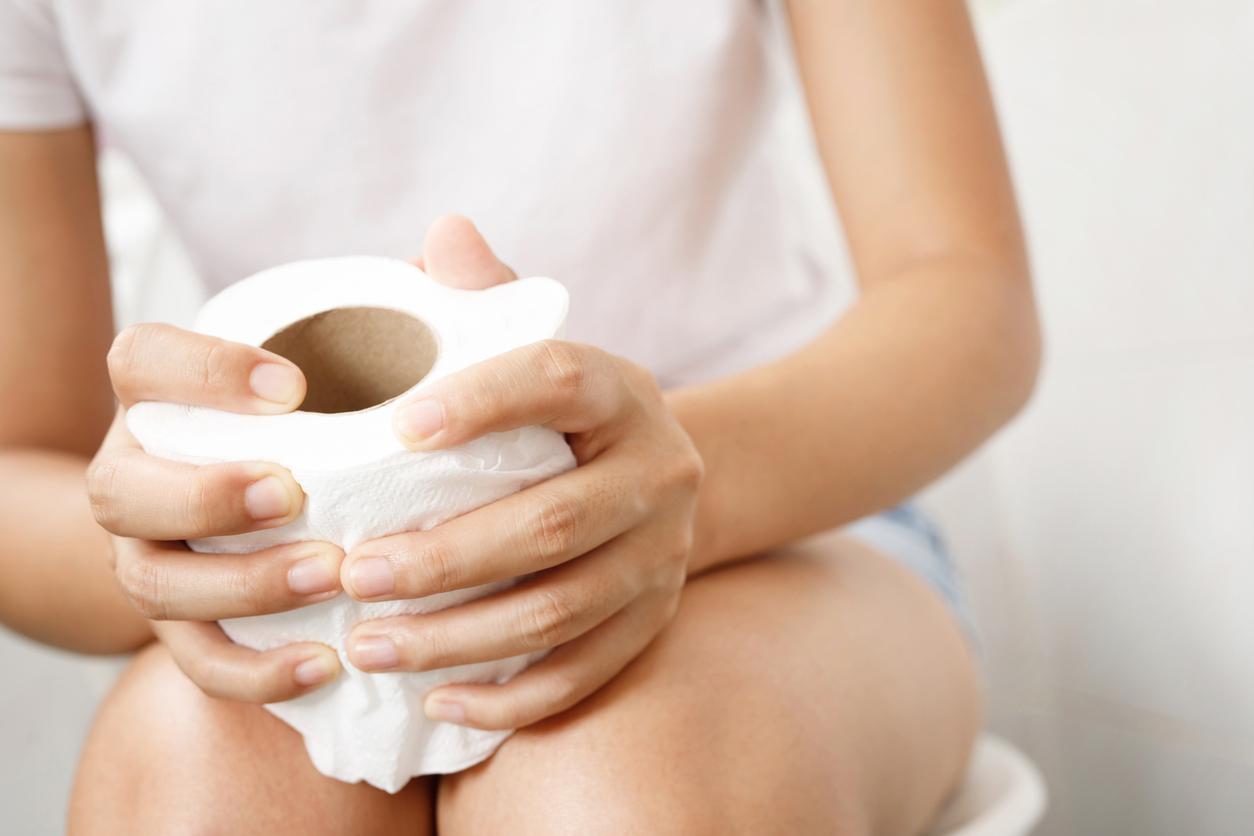Doctor, I have hemorrhoids
Frequent, hemorrhoids are in fact simply vessels in the wall of the anus. External, they form small painful balls that manifest themselves in crises. Internal, they mainly cause bleeding and can grow to protrude out of the anus.
What you can do. In both cases, “we must fight against a sluggish transit, responsible for constipation which itself promotes hemorrhoids” underlines Dr. Philippe Godeberge, gastroenterologist. We therefore start by increasing our fiber intake (carrot, spinach, zucchini, eggplant, cereal bread, legumes, apple, grapes, etc.), we drink more water (at least 1.5 litres/day) and we limits alcohol consumption (it dilates the blood vessels). Equally essential, do not hold back when you want to go to the bathroom and do not spend hours there “pushing” or reading. a better transit is enough to overcome it. As for ointments and creams sold in pharmacies, they can relieve pain on an ad hoc basis, provided that the hemorrhoids are not too large.
>> What the doctor will do. It all depends on your gene. After an examination and an interrogation, he can propose to you to reduce the protrusion and the bleeding of the internal hemorrhoids by putting a rubber band at the base of the “package of hemorrhoids”, to deprive it of blood. It can also deliver an infrared current (photocoagulation) directly on the hemorrhoid, in several impacts, in order to limit bleeding, but several sessions at 1 month intervals are necessary and this treatment is not always effective. In 5 to 6% of cases, regardless of the type of hemorrhoids, surgery will be unavoidable.
Doctor, I have gases
Quite different from belching (burping), often of nervous origin, flatulence can be due to excessive gas production (gurgling, rumbling, bloating) and/or excessive gas evacuation. The nauseating odor comes from the degradation of substances contained in food, by bacteria producing methane, an odorous gas. As for the sound of the fart, it is due to the vibration of the skin surrounding the anus. The more tense the muscles of the anus are, the faster the anus vibrates and the higher the sound produced.
What you can do. Frequent, smelly farts most often reflect irritable bowel syndrome. This dysfunction of the digestive tract, aggravated by stress, can come from an imbalance of the intestinal microbiota (dysbiosis) itself, increased by the consumption of chewing gum, aspartame, raw vegetables and foods that promote fermentation. (cabbages, salsify, onions, legumes, radishes). So, we choose the right foods (cooked vegetables, soluble fibres), we sit down to eat, we take the time to chew well, we urinate regularly, because a full bladder prevents the physiological and regular evacuation of gases, and we completely empties your bowel when you go to the toilet (constipation leads to stool stagnation and therefore gas).
>> What the doctor will do. “There is no instant and definitive medical solution hammers the gastroenterologist. We must take care of ourselves”. To limit odors, we can also for example favor legumes which produce non-odorous gases and reduce cold cuts meat that give off more foul gas.
Doctor, I smell feet
Sweat doesn’t smell bad, and if you change your socks every day, there’s no reason your feet should smell foul. If so, it means that your feet are infected with a fungus or bacteria that has contaminated the sweat.
What you can do. Frequent showers, but also disinfect his feet for a few days with an antiseptic soap. Also remember to treat all pairs of shoes with an antifungal powder. To avoid recurrences, favor socks made of natural fibers (cotton, Scottish thread), which allow the feet to breathe better, and “leather interior” or uncovered shoes.
>> What the doctor will do. He will prescribe a topical antifungal, in the form of a cream, gel, lotion or spray, to be applied regularly and for as long as he recommends. This is the condition of its effectiveness, because fungi are often quite resistant infectious agents.
Doctor, I have bad breath
We produce very little saliva while sleeping, this allows microbes to proliferate, hence our bad breath when we wake up. You can also have a heavy breath after a meal that is a little too heavy, because you have abused alcohol or ingested certain foods (garlic, onion, strong cheese, pepper, spices, etc.), but everything goes well in general very quickly in order once you go on a diet.
Other causes of halitosis (5-10%) include recurrent sinusitis (infected mucus in the sinuses drains into the throat), gastroesophageal reflux (food backs up from the stomach), liver disorders, infection of the tonsils, or taking certain medications that promote dry mouth (antidepressants, psychotropics, etc.).
What you can do. “When bad breath sets in, it is in 90 to 95% of oral origin assures Dr. Charles Micheau, dental surgeon. After each food intake, certain bacteria naturally present in the mouth (oral flora) develop. If we do not dislodge them, they stagnate and form a biofilm which is deposited everywhere in the mouth. They then release malodorous volatile sulfur compounds.” So brush your teeth thoroughly morning and evening (if possible with an electric toothbrush), combining it once a day with the use of dental floss, an interdental brush or even a dental jet to dislodge everything that has been deposited between the teeth. Finish with an appropriate mouthwash for at least 30 seconds, in order to eliminate the bacteria present on the tongue, the inside of the cheeks… And of course, consult your dental surgeon for a check-up at least once a year .
>> What the doctor will do. The treatment depends on the cause: sinusitis, reflux… . If it is of dental origin (caries, gingivitis, periodontal disease), he will refer you to a dental surgeon who will perform the necessary care and scaling.
Doctor, I suffer from vaginal dryness
With menopause, the mucous membranes no longer benefit from the estrogen bath which helped to hydrate them, they then tend to dry out and become very sensitive to irritation, which is painful after penetration.
What you can do. It is important to retaliate quickly, because once the alteration is established, it is difficult to reverse. Lubricants generally have too superficial an action, they only help penetration. For a more lasting effect, at the first signs, you can apply a few drops of an oily macerate of St. John’s wort with anti-inflammatory, moisturizing, analgesic and antibacterial properties every day to the vulva and the entrance to the vagina. Space out applications after improvement.
>> What the doctor will do. “A few years ago, hormone replacement therapy was prescribed with good results, but today women often refuse it, even in local application”, notes Dr Mimoun, gynecologist. The most effective alternative is then the laser vaginal (count between 300 and 700 euros per session) At the rate of 4 sessions of 10 minutes over 4 months, the superficial layer of the dried vaginal mucosa is removed, it will then be replaced spontaneously by a younger layer, therefore more hydrated. After 3 weeks, the pain will have disappeared. Then we repeat one or two sessions a year. “It’s a major step forward for women” says the gynecologist.
Doctor, I’m sweating too much
Hands, feet, armpits, neck… Some sweat more than others, this is particularly the case for children and adolescents. The reason: “a temporary immaturity of the balance between the sympathetic nervous system which stimulates the production of sweat and the parasympathetic nervous system which regulates it” explains Dr. Marc Perrussel, dermatologist. In addition, puberty stimulates the sweat and sebaceous glands which are activated by the action of sex hormones. In addition to heat, sweat can be favored by diabetes, hyperthyroidism, overweight and obesity, menopause or even stress.
What you can do. Shower as often as possible, choose loose cotton or silk clothes that let the skin breathe. For the armpits, rather than a deodorant which only covers the smell, prefer etiaxil, an antiperspirant to be applied to dry skin, which slows down perspiration. 3However, this product risks blocking the sweat glands and causing inflammation3, warns the doctor. On the other hand, drinking less will not change anything, because the water that we drink mainly helps to make the kidneys work.
>> What the doctor will do. In the event of significant perspiration and gene, the dermatologist can propose a treatment by iontophoresis at home: electrodes diffuse a galvanic current, intended to inactivate the sweat glands. Two or three 15-minute sessions a week can really reduce sweating. Another possible treatment: small injections of botulinum toxin to block the communication between the sweat gland and the nerve. “It is effective for six months to a year, but quite painful on the feet and hands” warns the dermatologist. Moreover, this product is not covered by health insurance (allow about 300 euros).
Read also :
- Consult a sexologist, why how?
- Should you buy a connected watch to take care of your health?
- Can we really boost our immunity?















